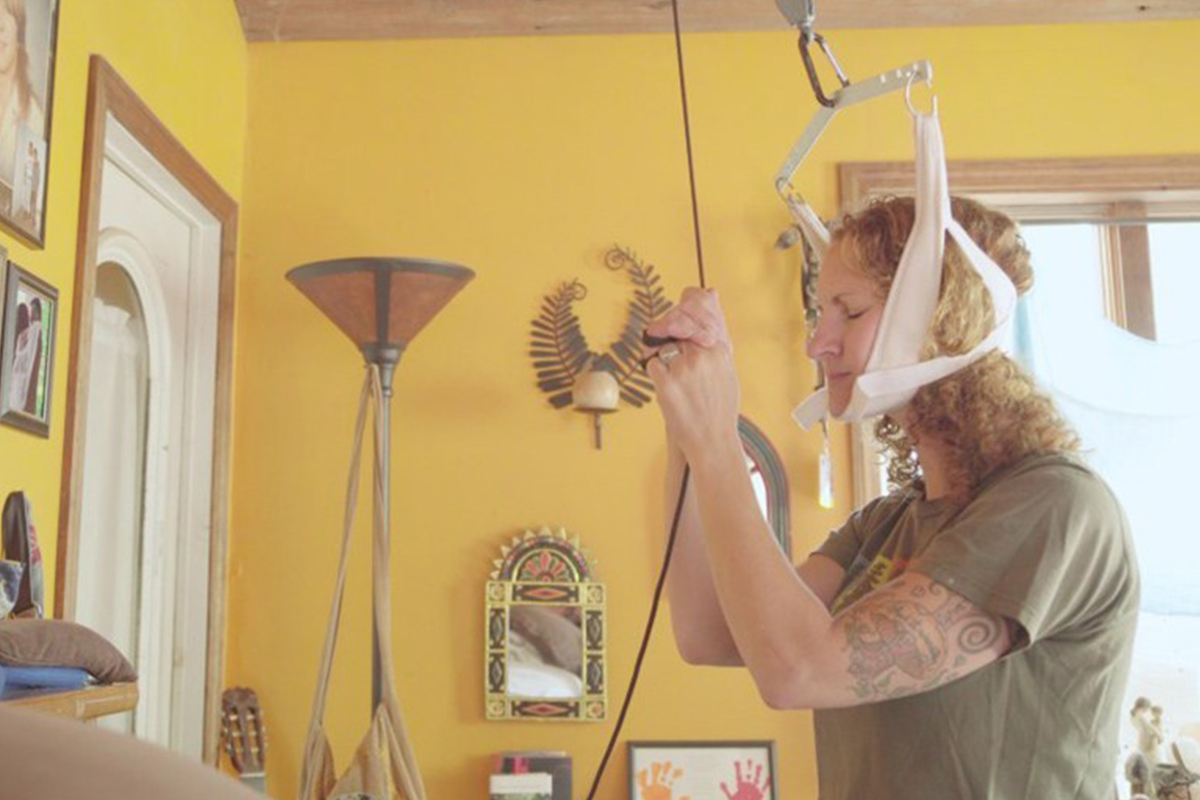
If we can make it better, we should.įirst, I think journalists have the responsibility of presenting both sides of an issue and not necessarily documentary directors who are presenting a certain point of view. If there are ways to improve the FDA process I am happy to have that conversation. It only came across as a way to savage the industry in my opinion, which has done amazing things for the global population. And I didn’t see that film as a way to solve any of the issues they believed existed. It leads one to believe that you are drawing people to view it as opposed to try to draw people to solve the problem. When you are not telling the complete story, you are driving to a specific outcome. Netflix is an entertainment thing and if a documentary is done to better educate the customer, the consumer or the population more broadly, they should tell a complete story. I guess it depends on how you view entertainment.
#Netflix bleeding edge movie
How can Whitaker say he doesn’t discount the trauma endured by those patients and in the same breath breath dismiss the overall documentary as just entertainment? So I pushed back for clarification saying I didn’t see the movie as entertainment. But that narrative doesn’t play as well when you are trying to, like Netflix, draw viewers to watch this.ĭid I watch the husband recount how his penis got cut by a shard of his wife’s pelvic floor mesh product during intercourse and think, “Wow, now that’s entertaining?” If you are going to tell one side of the story, you need to tell the other side of the story too. Each of those issues is serious.īut what the film didn’t do is talk about all the patients whose lives have been changed for the better and that’s millions and millions and millions of patients. That is not to suggest in any way that the patients who have had some harm associated with products that have used should be in any way discounted.
:max_bytes(150000):strip_icc()/ScreenShot2019-09-29at1.40.54PM-59c95ba6021942edae6313d865e00ce6.png)

Unfortunately, The Bleeding Edge to me became more of an entertainment documentary than it did a fact-based documentary. I think the public perception of the industry is still very high based on everything we’ve seen. So at the press conference last week, journalists including myself asked Whitaker about the documentary and how the public perceives the industry. Whitaker takes up the very first frames of the documentary and is portrayed as someone touting the innovative qualities of the products the industry makes while glossing over any risks. Given the subject matter o f The Bleeding Edge, it made sense to ask for comment from Scott Whitaker, CEO of AdvaMed during the routine press conference held last week at the Washington-based trade association’s annual MedTech Conference in Philadelphia. The director of the documentary - Kirby Dick- draws a straight line between devastated patients, defective products and a complicit industry where a deeply broken regulatory regime leads to poorly-researched products landing on the market.


 0 kommentar(er)
0 kommentar(er)
